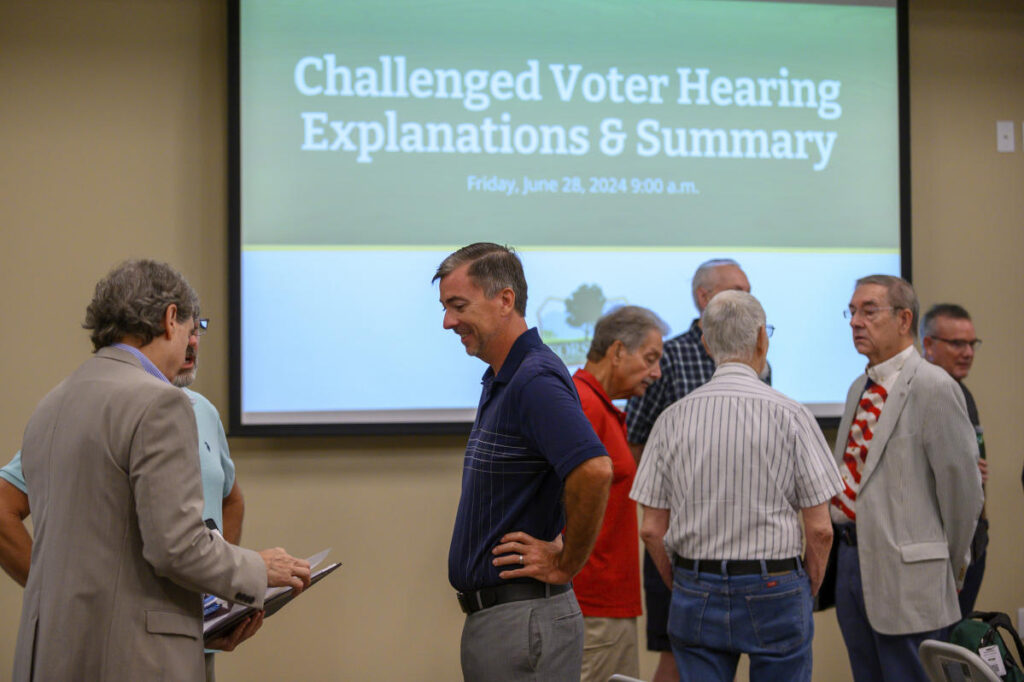In Georgia, a significant increase in voter challenges has emerged as part of an organized campaign led by allies of Donald Trump, aimed at questioning the eligibility of voters across the state. This escalated effort, which started around July 1, when a new law was partially enacted, has resulted in over 63,000 challenges being filed, primarily targeting individuals deemed “suspect” on the voting rolls. Despite this surge, only about 1% of the challenged voters have been successfully removed or placed into a challenged status, primarily due to county officials dismissing these challenges. In light of these developments, advocates pushing for stricter voter roll management are actively pursuing lawsuits and urging the State Election Board, which aligns with Trump, to exert more control over counties’ responses to these challenges.
Historically, the challenges had largely concentrated in majority-Democratic counties, especially in the Atlanta metro area, but the scope of scrutiny has expanded significantly. Now, at least 20 counties statewide, including traditionally Republican regions, have seen significant numbers of voter challenges since the law’s partial implementation. The overwhelming majority of these challenges have been rejected by county election officials. Only a small fraction, particularly from Forsyth County—a Republican stronghold—has been upheld. Under the current legal framework, voters placed in challenged status can still cast their votes if they can prove their residency.
The ongoing attempts to remove voters from the rolls have caught the attention of the U.S. Justice Department, which issued guidance aimed at curbing these challenges in connection with the National Voter Registration Act of 1993. Many of the targeted individuals appear to have moved from their listed addresses, yet proponents of voter challenges warn that allowing such individuals to remain registered poses a risk of voter fraud. Tools employed by activists, which compare change-of-address data and other public records, have gained traction for identifying potential cases of ineligible registration.
Reactions from both sides of the political spectrum highlight the contentious nature of these challenges. Many Democrats and voting rights advocates argue that the initiatives are designed to either unseat Democratic voters or create an atmosphere of doubt surrounding electoral integrity ahead of the 2024 presidential election. They attribute the rise in voter challenges to a climate of suspicion fostered by former President Trump’s unsubstantiated claims of widespread voter fraud post-2020 election, which have heightened concerns about the legitimacy of elections among GOP supporters.
Critics of the challenge system assert that the criteria used for disqualification are fundamentally flawed, emphasizing that a change of mailing address does not necessarily indicate a change of residence. Tools such as EagleAI and True the Vote’s IV3, which seek to identify ineligible voters, have faced significant criticism for being outdated and unreliable. However, supporters like Mike Coan, the Executive Director of the State Election Board, defend these challenges as necessary for maintaining accurate voter rolls, contending that counties should heed technology-driven insights to improve and enforce their voter registration processes.
There are also legal complexities regarding the intersection of federal and state laws that govern the voter roll challenge process. Following the 2020 elections, the Georgia legislature empowered voters to mount unlimited challenges against others in their county, which diverges from limits imposed by federal law on systematic changes to voter registrations prior to elections. While some counties have opted to await further action until after certain deadlines, the Republican majority in the State Election Board is pressing for more uniform rules to ensure that challenges are more thoroughly considered. If judicial or administrative changes occur that favor the challengers’ agenda, the current landscape of voter registration in Georgia could face significant shifts, as those seeking to challenge voter eligibility show no signs of retreating.

